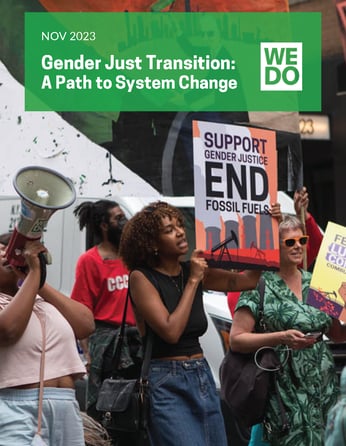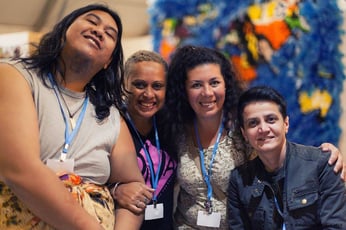
Advocacy Brief
Nov 29, 2023
Over the course of almost four decades, the concept of a “just transition” has undergone a transformative journey. Rooted in the protection of workers’ rights, it has evolved into a broader movement advocating for systemic change. WEDO recognizes the need to stand in solidarity with workers worldwide, in line with just transition’s original purpose of […]
Over the course of almost four decades, the concept of a “just transition” has undergone a transformative journey. Rooted in the protection of workers’ rights, it has evolved into a broader movement advocating for systemic change.
WEDO recognizes the need to stand in solidarity with workers worldwide, in line with just transition’s original purpose of safeguarding workers’ rights, as well as to advocate for a vision of a gender just transition grounded in structural transformation. This call for a structural change is deeply rooted in feminist ideology and principles.
Without guidance from feminist principles, the long-fought just transition may perpetuate the same systems of oppression, exploitation, and extraction of both people and the planet.
This brief aims to:
We offer this document as guidance to policymakers engaged in the United Nations Framework Convention on Climate Change (UNFCCC) and government officials at the national level responsible for designing and implementing just transition policies and programs. Additionally, we aim for this brief to support individuals across civil societies, trade unions, partners, and allies from around the world who directly or indirectly engage in or influence decisions and the implementation of just transition policies and programs.
Stay Informed
Receive updates on our progress, thinking, and strategies as we advocate for gender-just climate, environment, and economic policies around the world.
Resources


Support Our Work
Your donation provides us with the stable foundation we need to build the feminist future we’re working to realize.
Donate Today